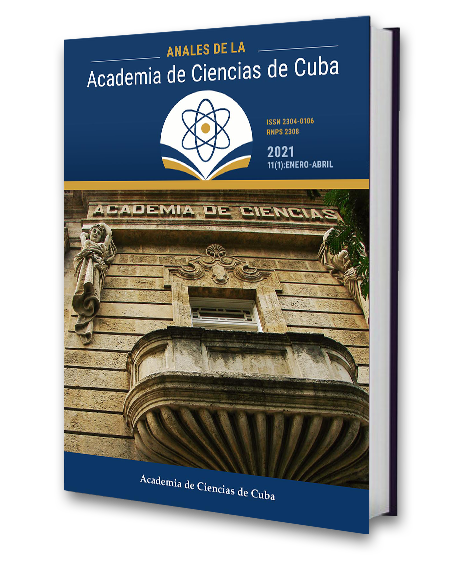Risk perception during confinement by COVID-19 in a Cuban sample: preliminary results
Keywords:
risk perception, COVID-19, risk perception managementAbstract
Introduction: COVID-19 is considered a biological risk due to its high contagiousness. The success of policies to stop the transmission of COVID-19 is based on the public having precise perceptions of risk factors. The objective of this research is to characterize aspects related to risk perception during the social distancing by COVID-19 in Cuba. This study has an exploratory-descriptive character and constitutes a pilot.
Methods: An online survey was made and validated by experts, and data were collected from June to July 2020. Descriptive statistics were used to analyze the data.
Results: Participants used various reliable sources and pathways of information to update themselves on COVID-19, presented a high level of knowledge of the disease and a high recognition of its risks. People followed appropriate and protective risk behaviors. Risk perception management was evaluated as excellent by most people. In general, respondents reported a favorable psychological state. Soon, our team will carry out studies of risk perception that will contribute to the development of strategies and measures to increase responsible behavior and empathy of the population in the face of health disasters.
Downloads
Downloads
Published
How to Cite
Issue
Section
License
The journal Anales de la Academia de Ciencias de Cuba protects copyright, and operates with a Creative Commons License 4.0 (Creative Commons Attribution-NonCommercial License 4.0). By publishing in it, authors allow themselves to copy, reproduce, distribute, publicly communicate their work and generate derivative works, as long as the original author is cited and acknowledged. They do not allow, however, the use of the original work for commercial or lucrative purposes.
The authors authorize the publication of their writings, retaining the authorship rights, and assigning and transferring to the magazine all the rights protected by the intellectual property laws that govern in Cuba, which imply editing to disseminate the work.
Authors may establish additional agreements for the non-exclusive distribution of the version of the work published in the journal (for example, placing it in an institutional repository or publishing it in a book), with recognition of having been first published in this journal.
To learn more, see https://creativecommons.org






